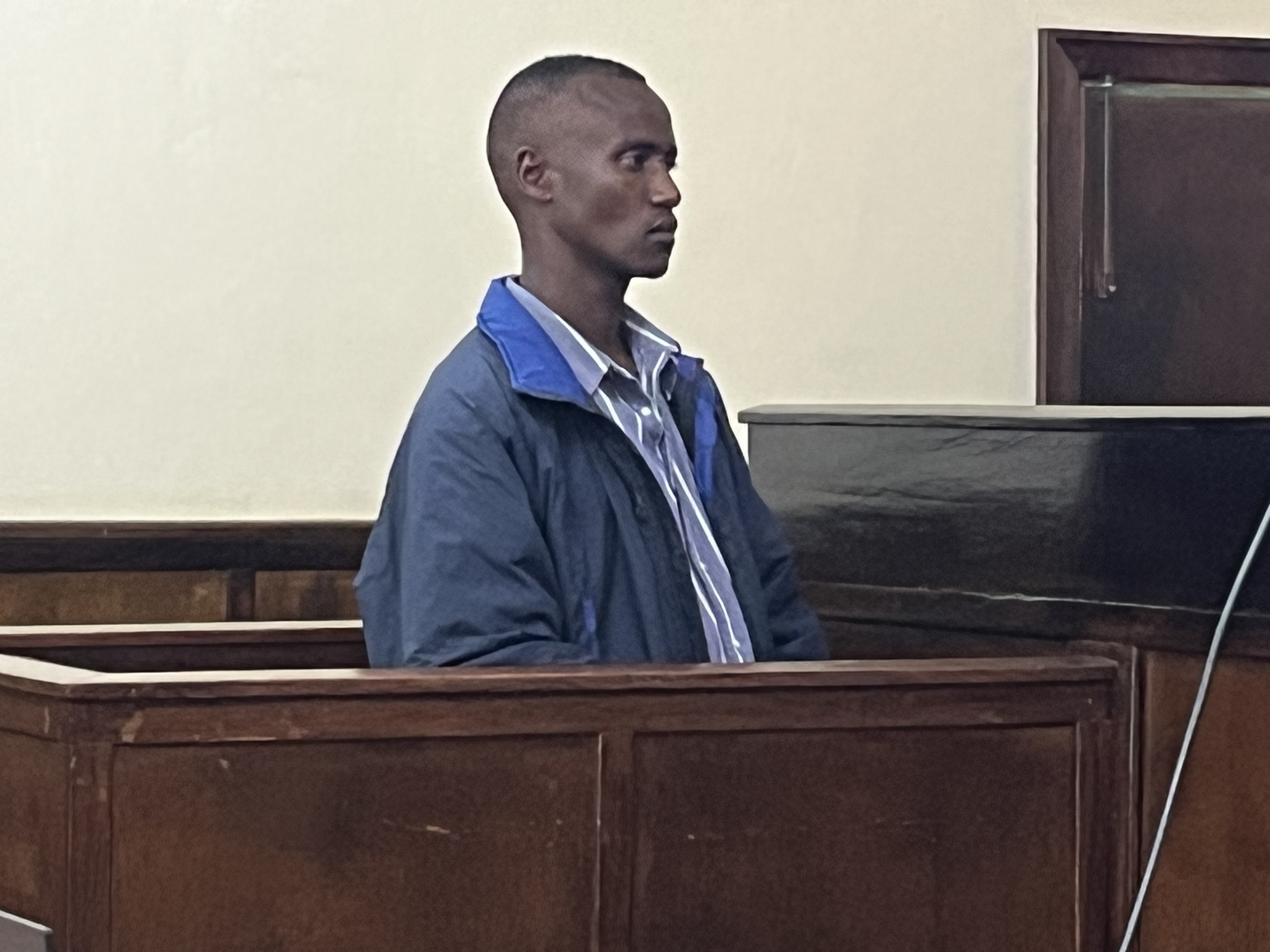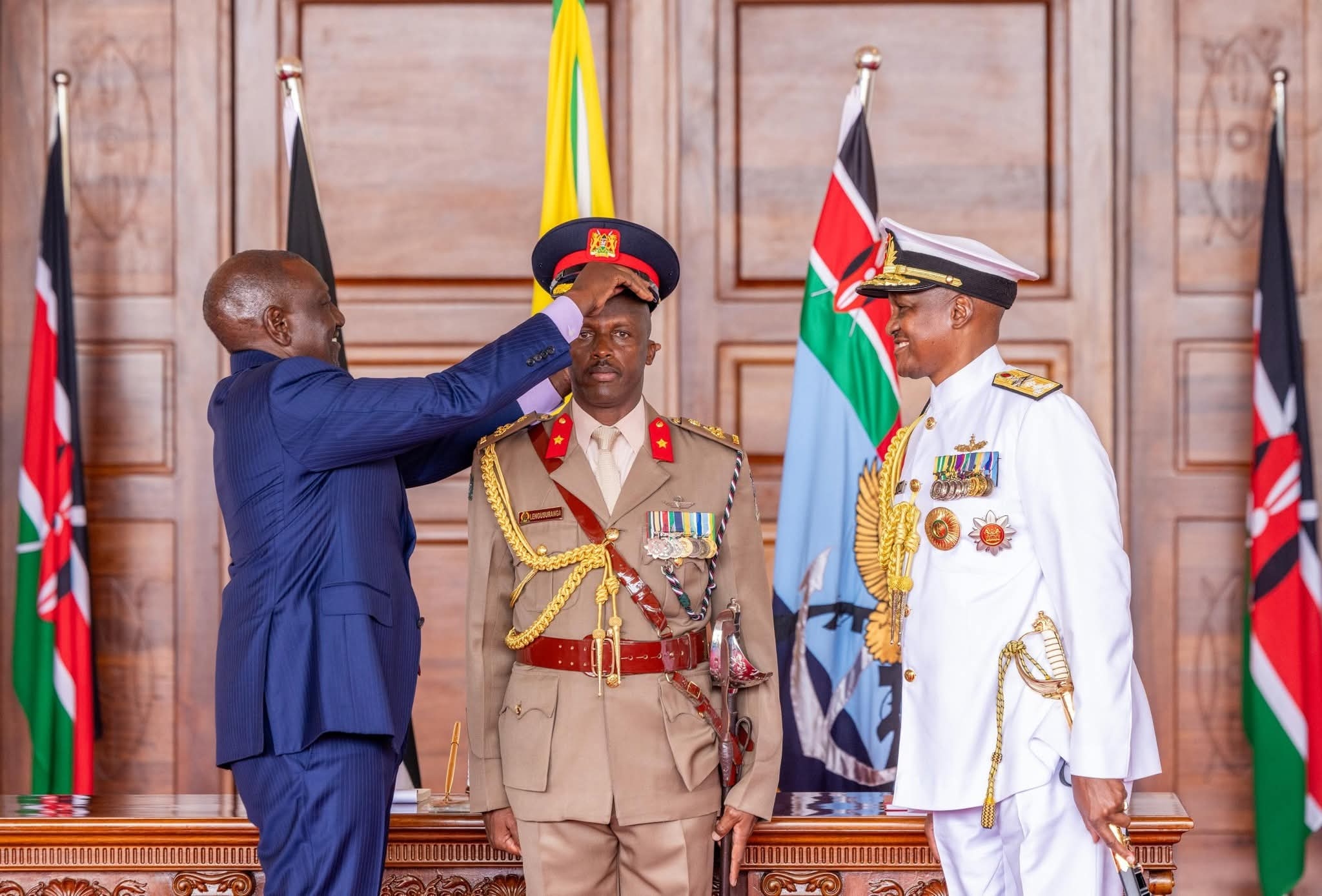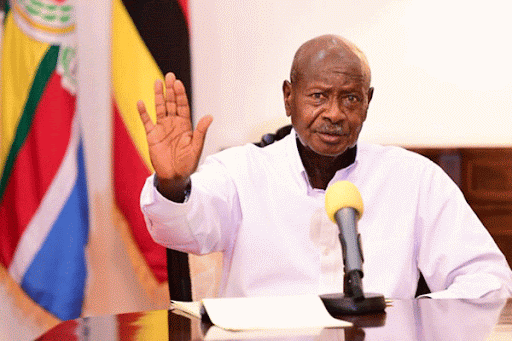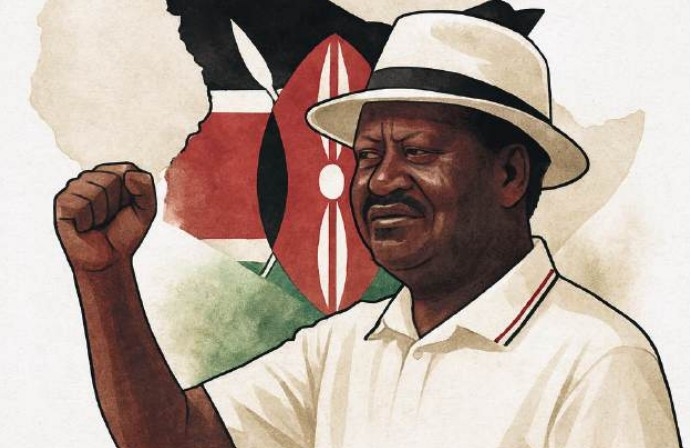

It was a quiet afternoon in Eldoret three years ago when a gunshot shattered the stillness at the Railways Police Lines.
Inside one of the small brick houses, police officer Maxwel Maina had turned his service firearm on his wife, Mercy Chebet—ending a love story in violence and heartbreak.
This week, the High Court in Eldoret brought closure to the tragedy when Justice Reuben Nyakundi sentenced Maina to 15 years in jail.
The officer, once trusted to protect lives, now faces years behind bars for taking one.
Initially charged with murder, he pleaded to a lesser count of manslaughter after reaching a plea agreement with Chebet’s family.
Justice Nyakundi said the court acknowledged the officer’s remorse and his reconciliation with his in-laws, but forgiveness, he ruled, could not replace justice.
“If this court were to set you free simply because of forgiveness and remorse, then the justice system would have failed,” he said.
The judge noted that Maina, a trained officer, had been armed to protect—not destroy.
“You did this act without any provocation or circumstance that would justify self-defence,” he said.
On November 28, 2021, Maina is said to have shot Chebet twice in the chest during a domestic quarrel at their home in Uasin Gishu county.
Witnesses told the court he was drunk at the time.
After the shooting, Maina allegedly returned to his workstation, carrying on with his duties as though nothing had happened.
It was only later that he surrendered himself at the Railways Police Station, still intoxicated. Officers there disarmed and detained him.
Among those who testified during the trial was Pastor Rebecca Kipchumba of the African Inland Church in Elgeyo Marakwet county, who recalled watching helplessly as the officer pulled the trigger.
“He accused her of refusing to open the door,” the pastor told the court.
“After shooting her, he told me not to take her to hospital because she was already dead.”
Chebet succumbed to her injuries while being taken to Moi Teaching and Referral Hospital in Eldoret.
Nyakundi said the “senseless” death could have been avoided had Maina chosen to act as a protector rather than a perpetrator.
“You have 14 days to appeal because this court is not the final point in such a matter,” he concluded.














